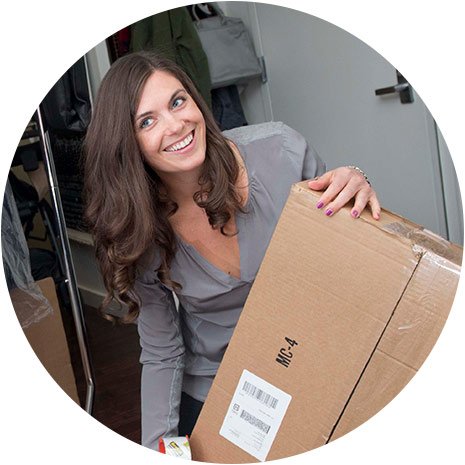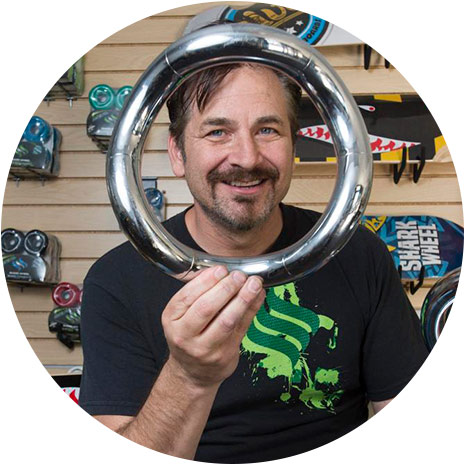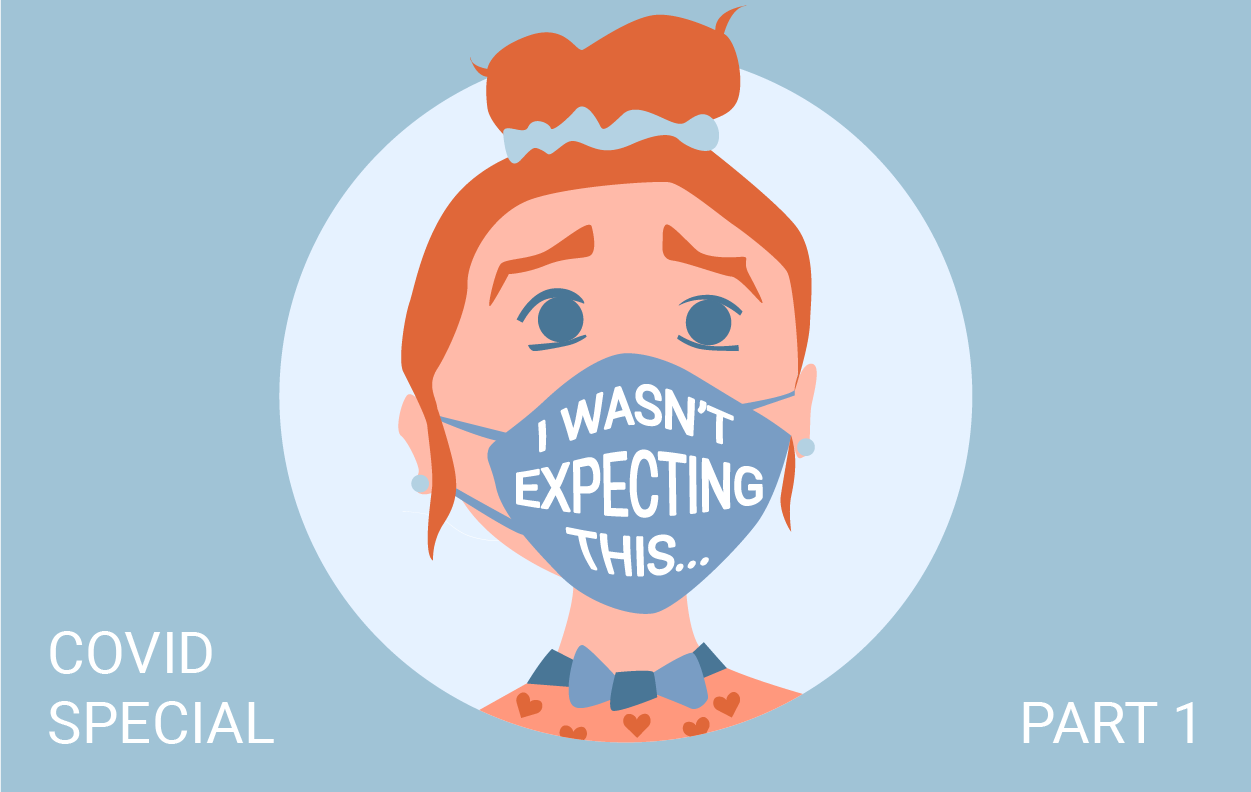
Covid-19 special part III
How are the entrepreneurs four months on?
MAKING IT WORK PODCAST
COVID-19 Special | Part III
Six months ago, the world changed forever. Coronavirus has changed the way we live and work, and small businesses have had to adapt to this dramatic shift.
In the third part of this Making It Work special, we catch up with the four entrepreneurs to see how their companies are looking a few months down the line. From $8 million investments to 'kind of' maternity leave, we discuss the ways this pandemic has made us rethink how we do business.
So what exactly is the 'new normal'? And will there ever be such a thing as 'post-COVID'?
Listen now
SHOW NOTES
COVID and entrepreneurs. Is it a never-ending story?
“When this is all over...” Just how many times have we all heard those words in recent times? When the pandemic began to cast its net, nobody had any firm estimate of how long it would last, or how far-reaching the effects would be. Weeks, said some. Months, said others.
For small businesses, life can seem like an endless rollercoaster of change and uncertainty. But COVID has put many in the situation of repeatedly coming close to coming off the rails, and many would like to see a happy ending... or in fact, any ending at all.
Many, but not all...
Something old, something new
“I didn't expect to do a pre-, post-, still-in-COVID-mode,” says Dana Donofree, owner of AnaOno, a company that makes lingerie for breast cancer survivors. Like many people, she feels that there was an element of naivety around the timescales involved, but she’s more realistic now. “I don't see, now, this is a temporary issue. I see this as a fairly semi-permanent challenge that we are to face in the next 12 to 24 months.”
That’s meant making real-life adjustments on how to function in a world that’s going through a global pandemic. “How do you work when you are among all of these challenges and how do you stay in business? And in some cases, how do you grow your business?”
But not everybody agrees about the temporary nature of the situation. David Patrick, the mind behind skateboard wheel business Shark Wheel, feels that the pandemic has fueled a growth bubble, one that will inevitably burst. “Here's what we've learned. Nobody, whether it's China or here, is willing to double their staff and double their things because they know it's a bubble and they don't want to have to fire a bunch of people later.”
The financial challenges
Staff retention has been a common theme throughout the pandemic of course, and it’s one that’s still omnipresent. “We did furlough some of our staff,” says Dana. “And I'm happy to say I was able to bring back two of them. That has given us our full load of staff that we can manage on our current cash flow. The PPPs have helped.”
For many businesses, the Payment Protection Program loan forgiveness has been a critical factor in getting their staff back to work even if, as Dana says, “They're changing the rules every other week.” As has the various rounds of grants and funding incentives. Dana managed to get in on the second round (“I never got in on the first round, even though I submitted applications within minutes of links going live.”), and she’s glad to see that a lot of the funds are going to smaller businesses rather than multinationals. “If a big organization like that needs millions of dollars, they're probably in trouble for other reasons, where $10,000 or $25,000 can really go a far way to keep a small business in business.”
Keeping body and soul together
There’s little doubt that – for small business owners and their customers – the fact that the pandemic has continued for such a long time has had a knock-on effect on their work-life balance, their family life, and their overall wellbeing. Diana Ganz knows this all too well – as co-owner of SuitShop (formerly The Groomsman Suit), she’s seen the impact of postponed weddings on both her customers and her business.
“Initially, people were wanting to postpone their dates. Now we're at the place where nobody actually has any idea when larger gatherings are going to be permitted again.” But from backyard weddings to hybrid courthouse weddings followed by a gathering, it’s all picking up – and so is her business. “Right or wrong, people are moving forward with their big days. I'm pretty happy, or at least satisfied with how we've been able to make it through despite well over 50% of weddings being either postponed or canceled. We've seemed to bounce back and even stabilize a little bit.”
And Diana’s own work-life balance has seen one very positive uptick. “I gave birth mid-May, so April was like my last six weeks of pregnancy. And I was just huge and walking into the office, doing all these fittings was getting physically very demanding. So the fact that I was able to work from home the last six weeks of my pregnancy was really a blessing.”
Managing management
It’s a reminder that so many aspects of working that we now take for granted – regularly working from home, meetings via Zoom – were all but unheard of a few years ago. And just as we were getting used to them, people are now coming back into physical working – and this hybrid operational model is bringing its own challenges.
“I can be on the phone from 8:00 AM to 8:00 PM…. I’ve actually gotten worse.”
“I think that boundaries in COVID, especially in a digital world are completely messed up,” says Dana. “I can be on the phone from 8:00 AM to 8:00 PM and it's a combination of phone calls, Zoom calls, Zoom meetings.” Dana was aware of the shifting boundaries at the outset of the pandemic, but, “...I've actually gotten worse. I keep telling myself I'm going to draw boundaries, but the reality is, that this is how we communicate with each other now.”
Has her management style changed as a result? “If I'm honestly reflecting on my own style of management, I have not adapted as quickly as I needed to. And I will say that because I manage very much with a hands-on level of experience and because my time is so taxed, it's very difficult for me to give that same level of attention and experience to my staff because I'm not in their atmosphere.”
David, on the other hand, insists that his management style is still the same. However: “We've had to hire more people, of course, so I've made other people managers that never were managers. I've stepped away a little bit. They were all experts and knew what they did every day and now they have a helper. So it's like, ‘Look, you don't need me.’ You tell them what to do. So it's been a push-off for me. I've been taking less responsibility on the day-to-days and letting the people that were really good at their jobs now push those skills down to a new group of people.”
Growth, logistics and the future
David’s standpoint comes from the successes that he’s enjoyed during the pandemic, but they haven’t all been consistent. “It’s been an amazing ride,” he says, “And now we've run into supply problems.” Having sold out of everything, he’s found restocking to be a huge headache – and an expensive one at that.
The entrepreneurs






Dana Donofree






Danny Catullo






Diana Ganz






David Patrick
“Not only sold out of everything, but back ordered so severely that every time I get any sort of order in, it's not only gone, it barely makes a dent in what's happening that day. We've had to spend hundreds of thousands of dollars in metal tooling so that we can double up our capacity and double up our production. And that's been a massive expense and very time consuming, but it's the only way to try and get the numbers up.”
David feels that the bubble of prosperity that some businesses are enjoying during COVID is going to burst, and soon. But not everyone shares his opinion.
Danny Catullo is still seeing his Perishable Shipping Solutions business surf a prolonged wave. “We've actually been fundraising during COVID, and have actually brought on a Series A investment of $8.7 million to help us be able to grow.” That would seem to be at odds with David’s theory that the bubble is going to burst.
“I would say that the coronavirus has really been sort of an event to jumpstart this industry,” he continues, “and it's been an accelerant for so many new companies to discover that e-commerce is the way that they need to be able to get their products into consumers' hands, especially as less and less people were actually going to stores.”
It’s been driven in no small way by the evolution of supply chain logistics, he feels. “What we're starting to see is people that are not necessarily in our line of work, which would be small parcel shipping for e-commerce, getting picked up by carriers like FedEx. We're starting to see cold storage places and other businesses that don't necessarily do this, start to do it on the side. And so, it's not their expertise, it's not their main source of business, but they're starting to see the opportunity that e-commerce is hot right now, and they want to provide the service for some of the brands.”
Does this mean that if people see that a butcher from Ohio can start a successful perishable shipping company, then they'll all think they can do it?
Danny laughs. “Good. We need more dreamers in this world.”
Listen to the episode
More episodes



Covid-19 special part I: How are small
businesses staying alive?
For all of our entrepreneurs, the global pandemic has brought massive change – lots of challenges, some difficult decisions, and even a few opportunities.



Covid-19 special part II: How do you run
a business during lockdown?
As the world begins to face the reality of a post-pandemic existence, small business owners are still working out how to operate safely. So how do you run a company under the constraints of coronavirus? And will things ever go back to how they were?